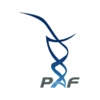Novel therapies for Propionic acidemia
Nicola Brunetti-Pierri, MD, Fondazione Telethon, Italy
This proposal was focused on the characterization of a fish model of propionic acidemia (PA) and on the development of novel therapies. The PA medaka fish model was found to recapitulate several clinical and biochemical features of the human disease, including reduced survival and locomotor activity, hepatic lipid accumulation, increased propionylcarnitine, methylcitrate, and propionate. Moreover, PA fishes showed better survival when fed with low-protein diet.
To gain insight into the disease pathogenesis and to search for potentially novel therapeutic targets, we performed an unbiased 3’-mRNA-Seq and NMR-based metabolome analyses. Both analyses showed global differences between PA and wild-type (wt) medaka. Interestingly, metabolism of glycine and serine resulted affected both at transcriptional and metabolites level and further studies are ongoing to investigate the role of these changes in the disease pathogenesis. Moreover, we found a marked increase in protein propionylation in PA fishes compared to wt controls. Protein propionylation is a post-translational modification occurring under normal conditions but its physiological role is unknown. Like protein acetylation, it is likely involved in regulation of gene expression, protein-protein interactions, and enzyme function. Interestingly, NAD-dependent sirtuins that are responsible of deacetylation of multiple proteins and have also de-propionylating activity, were significantly reduced in PA fishes. We speculated that aberrant protein propionylation in PA is toxic and proteomic studies are ongoing to reveal proteins with aberrant propionylation. With the support of this grant several drug candidates have been also investigated with the goal of developing new pharmacological approaches for PA.
In conclusion, we performed extensive phenotyping of the PA fish model that can be useful to unravel novel disease mechanisms and therapeutic targets.
updated September 2018
